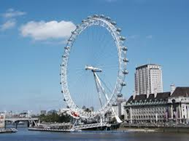题目内容
Janel gave her 13-year-old son Jim an iPhone for Christmas. But she also had a contract (契约)about how Jim’s new toy can and can’t be used.
Contract
Rule 1: It is my phone. I bought it. I pay for it. I am lending it to you. Aren’t I the greatest?
Rule 2: If it rings, answer it. It is a phone. Say “hello”, use your manners.
Rule 3: Hand the phone to one of your parents at 7:30p.m. every school night & every weekend night at 9:00 p.m.. It will be shut off for the night and turned on again at 7:30a.m..
Rule 4: Turn it off, silence it, put it away in public. Especially in a restaurant, at the movies, or while speaking with another people. You are not a rude person, do not allow the iPhone to change that.
Rule 5: Leave your phone home sometimes and feel safe. It is not all for you. Learn to live without it. Be bigger and more powerful than it.
Rule 6: Don’t take too many pictures and videos. There is no need to record everything. They will be stored in your memory for ever.
Rule 7: If it falls into the toilet, breaks on the ground, or lose, you should pay for it. You can take care of the baby, and wash dishes to save some money.
I hope you can agree to these terms and enjoy your new iPhone.
Mom
小题1:From the contract, who is the real owner of the iPhone?
小题2: From Rule 2 & Rule 4, we know mom hoped Jim can __________.
小题3: Can Jim use his iPhone at 8:00 p.m. on Saturday evening?
小题4: What does the underlined word “stored” mean in Chinese?
小题5:The best title of the passage should be ‘‘____________”.
Contract
Rule 1: It is my phone. I bought it. I pay for it. I am lending it to you. Aren’t I the greatest?
Rule 2: If it rings, answer it. It is a phone. Say “hello”, use your manners.
Rule 3: Hand the phone to one of your parents at 7:30p.m. every school night & every weekend night at 9:00 p.m.. It will be shut off for the night and turned on again at 7:30a.m..
Rule 4: Turn it off, silence it, put it away in public. Especially in a restaurant, at the movies, or while speaking with another people. You are not a rude person, do not allow the iPhone to change that.
Rule 5: Leave your phone home sometimes and feel safe. It is not all for you. Learn to live without it. Be bigger and more powerful than it.
Rule 6: Don’t take too many pictures and videos. There is no need to record everything. They will be stored in your memory for ever.
Rule 7: If it falls into the toilet, breaks on the ground, or lose, you should pay for it. You can take care of the baby, and wash dishes to save some money.
I hope you can agree to these terms and enjoy your new iPhone.
Mom
小题1:From the contract, who is the real owner of the iPhone?
| A.Jim | B.Jim’s parents |
| C.Janel | D.Jim’s father |
| A.be a person with good manners | B.say hello |
| C.speak with another people | D.answer the phone |
| A.Yes, he can. |
| B.No, he can’t. |
| C.We don’t know. |
| D.If he finishes his homework, he can use it. |
| A.储存 | B.供给 | C.消除 | D.取代 |
| A.A Christmas Present | B.Jim’s iPhone Contract |
| C.How to use an iPhone | D.Enjoy Your New iPhone |
小题1:C
小题2:A
小题3:A
小题4:A
小题5:B
试题分析:这篇文章讲的是一个叫Janel的妈妈给她儿子吉姆在圣诞节买了一部手机,但同时也制定了一些规则来约束,通过手机的使用对吉姆进行了教育。
小题1:细节理解题。根据文中原句It is my phone. I bought it.(这是我的手机,是我买的)可知手机的主人是Janel ,故选C。
小题2:推理判断题。在Rule 2和 Rule 4中Janel告诉吉姆如何有礼貌的接电话以及在公共场合怎样处理电话这样的问题,所以在这两条规则中是让吉姆做一个有礼貌的人,故选A。
小题3:推理判断题。根据文中原句Hand the phone to one of your parents at 7:30p.m. every school night & every weekend night at 9:00 p.m..(在每个上学的晚上7:30和周末晚上9:00把手机交给父母)可知吉姆可以在星期六晚上8:00用手机,故选A。
小题4:词义猜测题。根据文中原句句意(他们会永远存在你的记忆里面)可知stored是储存的意思,故选A。
小题5:标题归纳题。根据全文描述文中讲的是有关吉姆的妈妈和他对手机的使用问题所写的契约,所以选B。

练习册系列答案
相关题目



